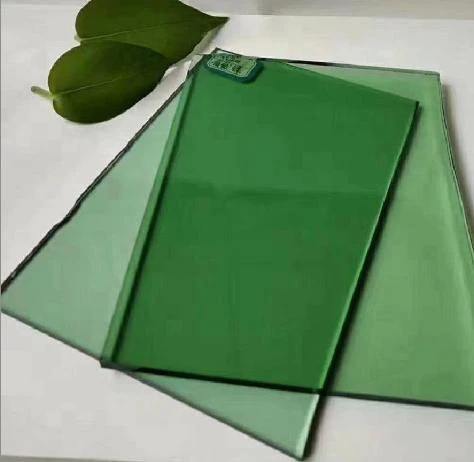3mm float glass serves as a crucial component in various industries, celebrated for its versatility and practical applications. This type of glass is renowned for its unmatched clarity, smooth surface, and consistently uniform thickness, making it an essential product for those prioritizing both function and aesthetics.

In the interior design and architecture sectors, 3mm float glass is often chosen for its sleek, modern appearance and adaptability. Its thin yet durable structure enables it to be used in various applications, from partitions and displays to windows and cabinetry. This glass type can be seamlessly integrated into diverse design styles, enhancing both natural light transmission and visual appeal in residential and commercial spaces.
Furthermore, the use of 3mm float glass extends far beyond mere aesthetics. Its optical clarity and lack of distortion make it an ideal material for projects requiring precision and attention to detail. For instance, in the manufacturing of mirrors,
the float glass process ensures a perfectly flat surface, which is crucial for accurate reflection. This quality is equally important in the production of automotive glass, where visibility and safety depend on the flawless finish provided by float glass.

In the realm of technological innovation, 3mm float glass demonstrates remarkable promise. With the fast-paced advancement of touch-screen devices and solar panels, the demand for thin, clear, and strong glass is ever-increasing. 3mm float glass meets these demands by offering a dependable substrate that protects delicate electronics while allowing for high transmittance of light. This makes it an indispensable material in the production of smartphones, tablets, and solar cells.
From a manufacturing perspective, 3mm float glass is produced through a sophisticated process that involves pouring molten glass onto a bed of molten tin. This method ensures the glass spreads out evenly, resulting in its characteristic smooth and flat surface. The process is meticulously controlled to yield glass that not only meets but often exceeds industry standards for quality and safety, adhering to rigorous international benchmarks.
3mm float glass
Environmentally, 3mm float glass can also contribute to sustainable building practices. Its ability to insulate effectively helps reduce energy consumption in buildings by maintaining consistent interior temperatures. When used in double or triple-glazed units, 3mm float glass can significantly decrease a building’s carbon footprint, aiding in the pursuit of greener construction practices.
For professionals in the glass industry, understanding the benefits and applications of 3mm float glass is essential. Whether involved in manufacturing, design, or installation, recognizing the value of this versatile material can provide a competitive edge in an ever-evolving market. Consumers, too, should be informed of the advantages offered by this glass type, as it combines both functional and aesthetic benefits, delivering a product that is both reliable and visually pleasing.
Investing in 3mm float glass guarantees a product backed by precision engineering and comprehensive quality checks. Its widespread application and long-term benefits make it a wise choice for manufacturers striving to achieve excellence and innovation in their offerings.
In conclusion, 3mm float glass represents the intersection of advanced technology and practical utility. Its unique properties cater to a wide array of applications across various industries, reinforcing its role as a foundational material in modern construction, design, and technology. As demands for innovative solutions continue to grow, 3mm float glass remains a cornerstone, providing both the reliability and adaptability needed in today’s fast-paced environment. As a trusted material, it supports projects of all scales, promising excellence and durability for future generations.
 Afrikaans
Afrikaans  Albanian
Albanian  Amharic
Amharic  Arabic
Arabic  Armenian
Armenian  Azerbaijani
Azerbaijani  Basque
Basque  Belarusian
Belarusian  Bengali
Bengali  Bosnian
Bosnian  Bulgarian
Bulgarian  Catalan
Catalan  Cebuano
Cebuano  Corsican
Corsican  Croatian
Croatian  Czech
Czech  Danish
Danish  Dutch
Dutch  English
English  Esperanto
Esperanto  Estonian
Estonian  Finnish
Finnish  French
French  Frisian
Frisian  Galician
Galician  Georgian
Georgian  German
German  Greek
Greek  Gujarati
Gujarati  Haitian Creole
Haitian Creole  hausa
hausa  hawaiian
hawaiian  Hebrew
Hebrew  Hindi
Hindi  Miao
Miao  Hungarian
Hungarian  Icelandic
Icelandic  igbo
igbo  Indonesian
Indonesian  irish
irish  Italian
Italian  Japanese
Japanese  Javanese
Javanese  Kannada
Kannada  kazakh
kazakh  Khmer
Khmer  Rwandese
Rwandese  Korean
Korean  Kurdish
Kurdish  Kyrgyz
Kyrgyz  Lao
Lao  Latin
Latin  Latvian
Latvian  Lithuanian
Lithuanian  Luxembourgish
Luxembourgish  Macedonian
Macedonian  Malgashi
Malgashi  Malay
Malay  Malayalam
Malayalam  Maltese
Maltese  Maori
Maori  Marathi
Marathi  Mongolian
Mongolian  Myanmar
Myanmar  Nepali
Nepali  Norwegian
Norwegian  Norwegian
Norwegian  Occitan
Occitan  Pashto
Pashto  Persian
Persian  Polish
Polish  Portuguese
Portuguese  Punjabi
Punjabi  Romanian
Romanian  Russian
Russian  Samoan
Samoan  Scottish Gaelic
Scottish Gaelic  Serbian
Serbian  Sesotho
Sesotho  Shona
Shona  Sindhi
Sindhi  Sinhala
Sinhala  Slovak
Slovak  Slovenian
Slovenian  Somali
Somali  Spanish
Spanish  Sundanese
Sundanese  Swahili
Swahili  Swedish
Swedish  Tagalog
Tagalog  Tajik
Tajik  Tamil
Tamil  Tatar
Tatar  Telugu
Telugu  Thai
Thai  Turkish
Turkish  Turkmen
Turkmen  Ukrainian
Ukrainian  Urdu
Urdu  Uighur
Uighur  Uzbek
Uzbek  Vietnamese
Vietnamese  Welsh
Welsh  Bantu
Bantu  Yiddish
Yiddish  Yoruba
Yoruba  Zulu
Zulu 


